Thursday 15 May 2008
Why I don't brew
When I was younger. Much younger. Much, much younger, I used to homebrew. I started while I was still at school.
It was my elder brother that got me into it. We were broke. Dead broke. It was the only realistic way of getting our hands on any booze. With mum living on a widow's pension and pocket money non-existent we had no choice.
We started with Geordie kits. Cheap and cheerful, bought in Boots. At first we just stuck to the kit recipe. Then my brother bought a copy of "The Big Book of Brewing". That was when we started getting more serious. When was it? 1974, I think, that we got our hands on a recipe for Younger's No. 3 clone. We brewed it, but had no idea how much it resembled the original. Younger's hadn't brewed No.3 for several years. I can remember taking a bottle of it along to Martin Young's birthday party. I wonder where he is now? His mother's shop, Jane Young, is still there on Chain Lane in Newark. Who owns it now?
(Digressing slightly, Martin was also a CAMRA member. We travelled down to London together to the first national CAMRA estival, held in Covent Garden market in 1975. This was between its closure as a flower market and its transformation into a posh shopping centre. I can only remember one beer I drank there - Yorkshire Clubs Dark Mild. It was pitch black and rather good. Shortly afterwards the brewery was bought by Federation and closed.)
The next step was to go all grain. We got hold of an old Burco boiler to use as a mash tun. Our batch size jumped up to 10 gallons or more. Initially we used second-hand plastic barrels, of the type used to dispense cider or sherry in off-licences. It was one of these that held the iced Mild I drank in Leeds in the summer of 1976.
My brother heard that John Smiths were selling off their stock of wooden barrels to gardeners. They chopped them in half and used them as plantpots. Philistines. They were still in working order. After Barnsley closed in 1976, they had no use for casks of any kind. They'd gone all bright. A brewery dray delivered the 6 wooden firkins he ordered to our house at 48 Wilfred Avenue. (I still think of it as "our house" despite not having there for more than 30 years.) The casks were a mixed bunch. Some Barnsley, some John Smiths and some Hole's. A couple still even had dry hops in them.
Newark wasn't just a brewing town. It was a centre of malting, too. In the 1970's there were still active matings in the town. My brother took advantage of this to buy his malt in bulk and direct. He purchased a sack of pale and a sack of mild malt. We now had everything we needed to brew on quite a grand scale. Or rather my brother did, because by this time I was away at University in Leeds.
My brother brewed the odd firkin of Bitter or Mild, but I think he had trouble getting through it quickly enough by himself. He brewed off and on until 1979. That year he found a job accountanting in Jamaica. The last beer he brewed before leaving was Jamaica Barley Wine, an incredibly strong beer he hoped would be ready on his return a couple of years later.
Just before my brother left for Jamaica, he drove up to Leeds in a van, bringing the burco boiler, firkins and malt. I hadn't asked him to. In reality, I didn't want all that stuff. I was living in a rented room and didn't really have anywhere to put it.
I was in 97 Brudenell Road at the time. Not the most hygienic of environments, what with the 8 single men, mice and cat. I only brewed there twice. The first brew, a firkin of Mild , was infected, but some of it got drunk. The second was stinking before I even got it out of the mash tun. Not worth fermenting. I called it a day after that. But for the following three years I dragged all the equipment along with through a succession of rental accommodation. When I left Leeds for London in January 1983, I dropped it off in Newark on the way South. It was such a relief to be rid of it.
There followed a long hiatus in my brewing career. Until 1992 or 1993. Dolores and I we were back in Amsterdam and had bought our first flat, on Willem de Zwijgerlaan in De Baarsjes. Finally the space and hygiene to brew again.
I can't remember what prompted it. Maybe I'd noticed the place selling home brew supplies in De Pijp. That could have been it. I bought a monster saucepan, bags of malt and hops and set to it. Oh, and a thermometer and hydrometer. It's hard to brew without those, too.
My first brew was a Mild - what else? Now, down the homebrew shop, I hadn't been quite sure of the Dutch names for all the malts. I thought I'd bought pale and black malt. In fact it was amber and chocolate. My recipe was 95% of the former 5% of the latter. What I got wasn't a Mild, but quite a nice Porter. It was all downhill from there.
I tried about another half dozen brews. None was as good as my first accident and I started having infection problems. That's when I realised that a kitchen stove in a small flat isn't the best place for sterile brewing. So I stopped.
I still have the giant saucepan, hydrometer and thermometer. (I think, buried in the depths of my beer cupboard, there are even still a few bottles of my beer.) It would be possible to brew again. But with the kids, the internet and all the other crap that fills my life there really isn't the time. Not to do it properly. And I've found a much better way of getting the beer I want made: I get Menno to brew it for me. He has a professional brewery and knows what he's doing. That's why I no longer brew.
It was my elder brother that got me into it. We were broke. Dead broke. It was the only realistic way of getting our hands on any booze. With mum living on a widow's pension and pocket money non-existent we had no choice.
We started with Geordie kits. Cheap and cheerful, bought in Boots. At first we just stuck to the kit recipe. Then my brother bought a copy of "The Big Book of Brewing". That was when we started getting more serious. When was it? 1974, I think, that we got our hands on a recipe for Younger's No. 3 clone. We brewed it, but had no idea how much it resembled the original. Younger's hadn't brewed No.3 for several years. I can remember taking a bottle of it along to Martin Young's birthday party. I wonder where he is now? His mother's shop, Jane Young, is still there on Chain Lane in Newark. Who owns it now?
(Digressing slightly, Martin was also a CAMRA member. We travelled down to London together to the first national CAMRA estival, held in Covent Garden market in 1975. This was between its closure as a flower market and its transformation into a posh shopping centre. I can only remember one beer I drank there - Yorkshire Clubs Dark Mild. It was pitch black and rather good. Shortly afterwards the brewery was bought by Federation and closed.)
The next step was to go all grain. We got hold of an old Burco boiler to use as a mash tun. Our batch size jumped up to 10 gallons or more. Initially we used second-hand plastic barrels, of the type used to dispense cider or sherry in off-licences. It was one of these that held the iced Mild I drank in Leeds in the summer of 1976.
My brother heard that John Smiths were selling off their stock of wooden barrels to gardeners. They chopped them in half and used them as plantpots. Philistines. They were still in working order. After Barnsley closed in 1976, they had no use for casks of any kind. They'd gone all bright. A brewery dray delivered the 6 wooden firkins he ordered to our house at 48 Wilfred Avenue. (I still think of it as "our house" despite not having there for more than 30 years.) The casks were a mixed bunch. Some Barnsley, some John Smiths and some Hole's. A couple still even had dry hops in them.
Newark wasn't just a brewing town. It was a centre of malting, too. In the 1970's there were still active matings in the town. My brother took advantage of this to buy his malt in bulk and direct. He purchased a sack of pale and a sack of mild malt. We now had everything we needed to brew on quite a grand scale. Or rather my brother did, because by this time I was away at University in Leeds.
My brother brewed the odd firkin of Bitter or Mild, but I think he had trouble getting through it quickly enough by himself. He brewed off and on until 1979. That year he found a job accountanting in Jamaica. The last beer he brewed before leaving was Jamaica Barley Wine, an incredibly strong beer he hoped would be ready on his return a couple of years later.
Just before my brother left for Jamaica, he drove up to Leeds in a van, bringing the burco boiler, firkins and malt. I hadn't asked him to. In reality, I didn't want all that stuff. I was living in a rented room and didn't really have anywhere to put it.
I was in 97 Brudenell Road at the time. Not the most hygienic of environments, what with the 8 single men, mice and cat. I only brewed there twice. The first brew, a firkin of Mild , was infected, but some of it got drunk. The second was stinking before I even got it out of the mash tun. Not worth fermenting. I called it a day after that. But for the following three years I dragged all the equipment along with through a succession of rental accommodation. When I left Leeds for London in January 1983, I dropped it off in Newark on the way South. It was such a relief to be rid of it.
There followed a long hiatus in my brewing career. Until 1992 or 1993. Dolores and I we were back in Amsterdam and had bought our first flat, on Willem de Zwijgerlaan in De Baarsjes. Finally the space and hygiene to brew again.
I can't remember what prompted it. Maybe I'd noticed the place selling home brew supplies in De Pijp. That could have been it. I bought a monster saucepan, bags of malt and hops and set to it. Oh, and a thermometer and hydrometer. It's hard to brew without those, too.
My first brew was a Mild - what else? Now, down the homebrew shop, I hadn't been quite sure of the Dutch names for all the malts. I thought I'd bought pale and black malt. In fact it was amber and chocolate. My recipe was 95% of the former 5% of the latter. What I got wasn't a Mild, but quite a nice Porter. It was all downhill from there.
I tried about another half dozen brews. None was as good as my first accident and I started having infection problems. That's when I realised that a kitchen stove in a small flat isn't the best place for sterile brewing. So I stopped.
I still have the giant saucepan, hydrometer and thermometer. (I think, buried in the depths of my beer cupboard, there are even still a few bottles of my beer.) It would be possible to brew again. But with the kids, the internet and all the other crap that fills my life there really isn't the time. Not to do it properly. And I've found a much better way of getting the beer I want made: I get Menno to brew it for me. He has a professional brewery and knows what he's doing. That's why I no longer brew.
Subscribe to:
Post Comments (Atom)
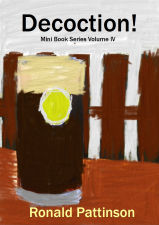



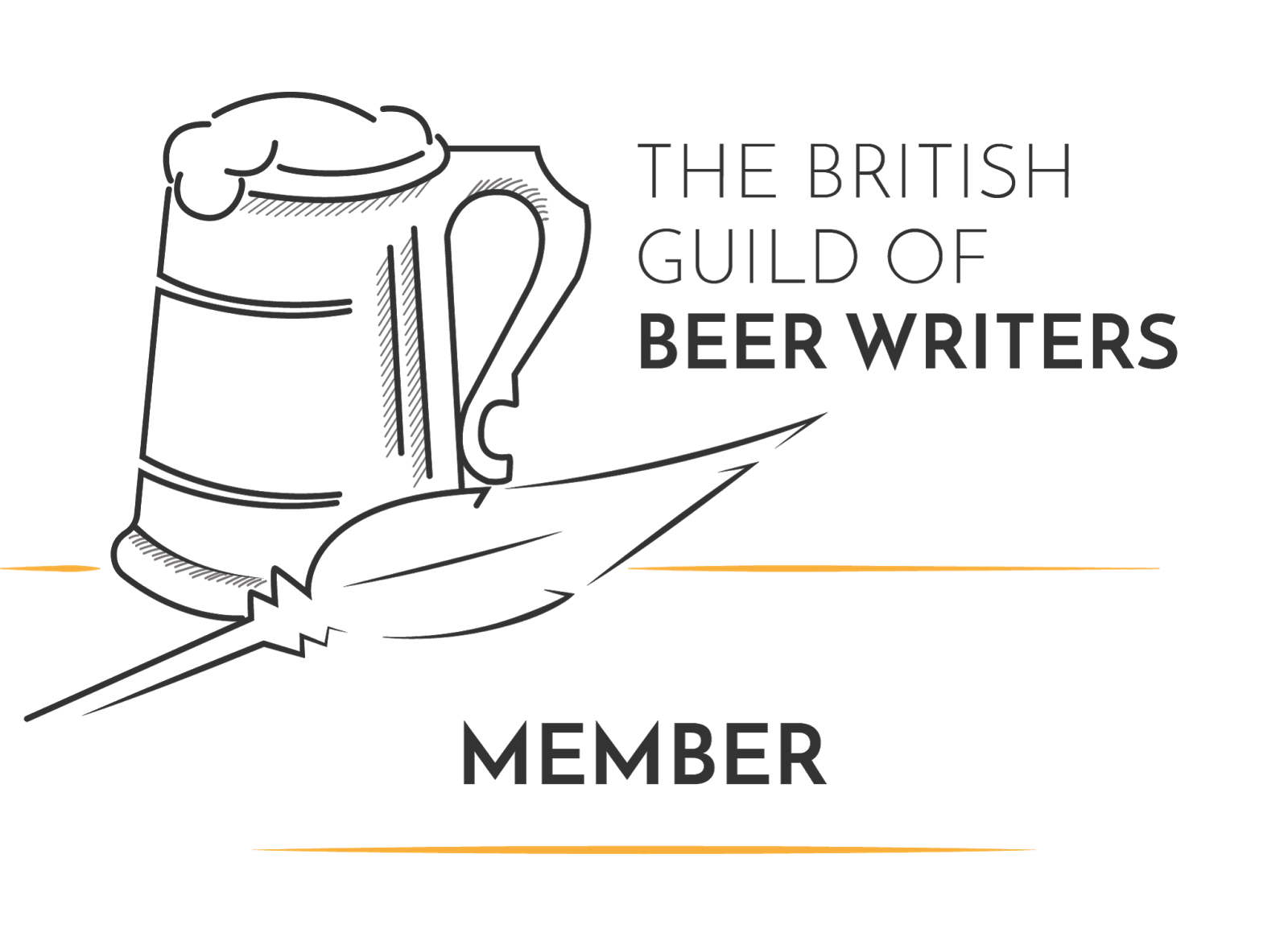









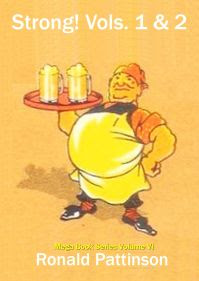

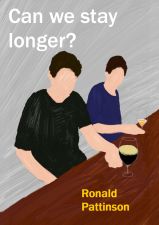
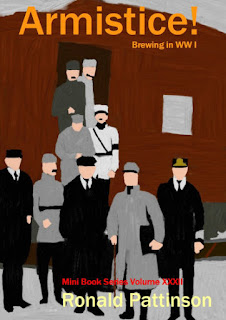


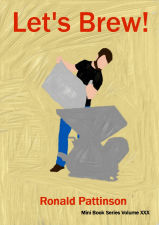





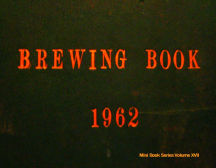
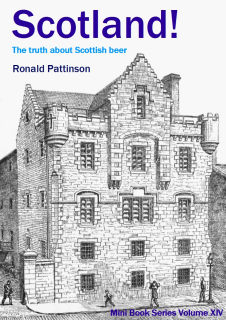
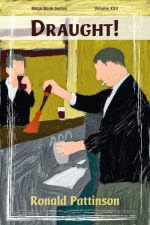

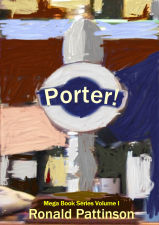



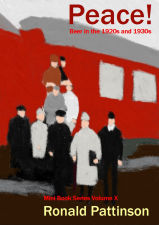


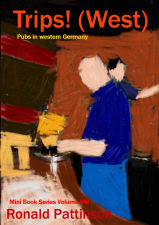
































10 comments:
Do you mean Younger's No.1? I'm sure I was drinking Younger's No.3 in Yorkshire into the 1980's
Younger's No.3 was later revived. In 1974 it was extinct.
Хорошо, Я понимаю, спасибо Рон.
Andy, dekuju.
An interesting and well written post.
That being said I am suprised brewing put you off as all grain brewing is almost as difficult as frying an egg.
Maybe I just fry a terrible egg!
Homebrewing also gives one a great insight into the interactions between malt, yeast and hops at least to my admittedly biased view.
Thanks for the Mild posts to by the way - very informative.
Ron - thanks for another excellent post.
Matt - I agree about the insight homebrewing gives you into what makes a beer taste the way it does, but I'm not so sure about the egg-frying comparison... Having said that, I've recently started homebrewing again after a break of 6 years (work, kids, the usual reasons) and I'm loving it!
I think learning about brewing and actually do it really help ones understanding of beer. The problem comes when it goes too far. A lot of home brewers have no sense of other people and feel its their duty to inform professional brewers how to make their stuff better. Combine them with being a beer judge and brewer then you get 1+1 = wanker. They'll have a beer and say, 1) This is not X style that you call it and 2) here are the ways you could make it better. Sod off! Seriously.
It makes me completely embarrassed when I see someone do this. Most of the time these people are crap judges and even worse brewers. Every brewery tour Ive been on there is always some 'know it all' asking the most asinine questions and usually start with, 'Im also a brewer...' These aren't your normal mashing/hop questions its more along the lines of, 'What is the concentration of carbonates in your water relative to the amount of chlorine.' Are you kidding me!? Oops, right into the fermenter. Sorry boss.
In all seriousness, there are things you can learn about beer by brewing that you really can't by just drinking beer. One of them, the most important in my book, is to gain respect for the ability of other brewers. A good damn pint is a good damn pint. People these days are always trying to pick holes in beers for no reason. Even though I do like to talk brewing and pick apart beers, most times I just want to drink a pint and enjoy it. A modicum of self restraint is a wonderful thing whilst running in these circles.
Matt,
I have a small, overcrowded kitchen. Being realistic, there's no way I'm going to keep it sterile. I have tried to interest Dolores in a luxury shed housing a combined pub and brewery. By the look on her face, I shouldn't get my hopes up.
The mashing bit I didn't have any trouble with. It was easy enough to get the temperature right.
I can see the educational value of brewing yourself. I contemplated a having a go with some of the old Porter grists just to get an idea of the colour.
Luckily, I have access to a professional brewery. I was there when my SSS was brewed. I get some of the benefit, without actually having to do anything technical. Menno and I discuss the recipes of my beers. I have a copy of the brewing log so I can see exactly what was used and how. Admittedly not quite the same as doing it all yourself, but still very revealing.
Menno tries out his new beers on me whenever I visit the brewery. He explains exactly what he was trying to achieve and how. I could listen to him all day. Even when I say something stupid, he's very patient. Our conversations have definitely helped me understand things better from a brewer's perspective.
Ron,
I think having access to a real brewer/brewery trumps my efforts with cool boxes and large pots!
kristen, funny you should mention these annoying homebrewers. I'd just written a post on that very topic. You must be psychic. I've just published it.
Post a Comment